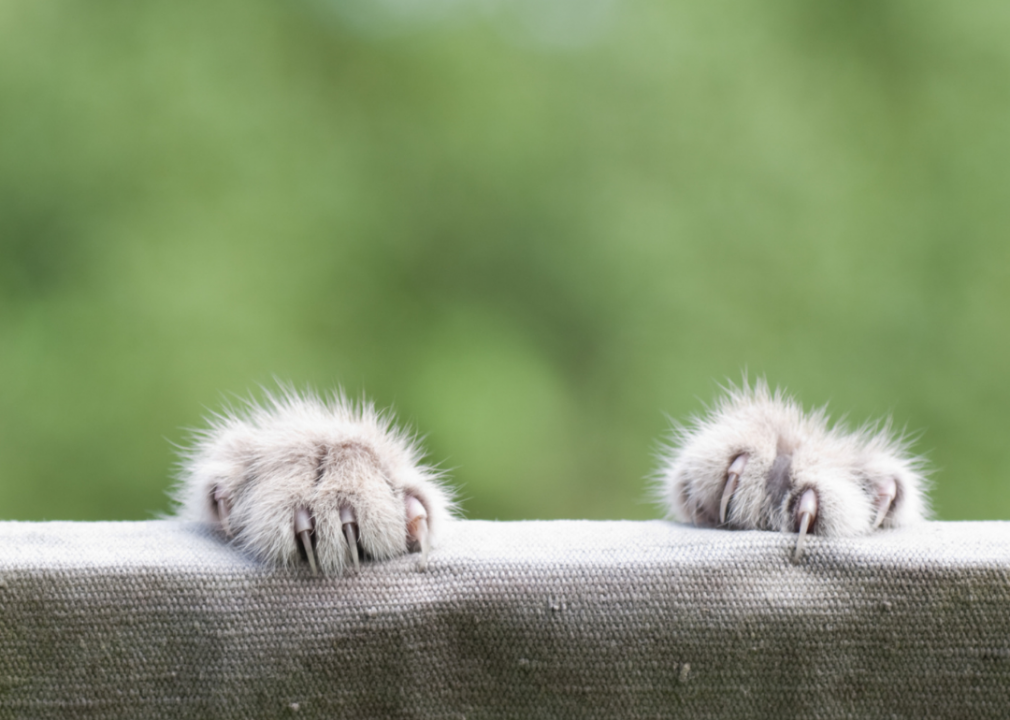PHOENIX т A House committee voted to make routine declawing of cats illegal in УлшжжБВЅ after its chairman called the procedure тgruesome and unnecessary.т
The 10-3 vote Wednesday came after the testimony of several veterinarians who also told the Government and Elections Committee the practice is unnecessary.
More to the point, they provided some graphic detail that this is more than removing a nail. Instead, they noted, it involves amputating part of each of the fingers on a catтs paws.
The majority of lawmakers on the committee said they were unconvinced by claims that sometimes it is in the interest of the cat т and an ownerтs ability to keep that cat т to allow the procedure.
The proposal, House Bill 2224, written by Rep. Amish Shah, D-Phoenix, now requires a vote of the full House.
People are also reading…
It is being advanced by some animal rights groups.
Dr. Steve Hansen, president of the УлшжжБВЅ Humane Society and a veterinarian, said when he first graduated from medical school, he declawed cats when asked to by owners. But he told lawmakers that was before he got to see the effect it had on the animals.
Hansen said the reason the declawing process involves amputation of the last third of the finger at the joint is that the alternative of removing the claw itself is largely ineffective.
тItтs likely to regrowт in many circumstances тand cause the cat great discomfort walking and great pain.т
Colleen Bell, a Phoenix resident, provided a different perspective, however.
She told committee members about Salem, who belonged to her mother. Bell said the cat would jump on her motherтs lap and scratch her, тnot out of meanness but just because she wouldnтt retract her claws quickly enough for the landing.т
Bell said it was a doctor treating her mom for a cut who suggested having the cat declawed to avoid future injuries.
тTaking away the declaw option would have been an emotional nightmare for numerous families as well as my own,т Bell said. The alternative would be having to surrender the animal, she said.
тI saw the comfort Salem gave her in the last days of her life,т Bell said of her mother. тAnd it was priceless.т
Hansen, however, said that some cats, reacting to not having claws to use to defend themselves, will instead turn to biting.
тAnd cat bites are much more serious than cat scratches,т he said.
Anyway, Hansen said, there are other options, such as trimming the catтs nails. тItтs actually very easy to do,т he said. тAnd by blunting the nails they cannot do nearly as much destructive activity.т
The measure also got support from Dr. Jennifer Conrad, a veterinarian and founder of The Paws Project, which she describes as the worldтs largest nonprofit organization dedicated to ending declawing.
тCats no longer have to suffer the 10 to 18 or more amputations that are totally unnecessary to manage a cat,т Conrad said.
She said a majority of people support a ban.
тI would argue thatтs probably not true,т countered Rep. Jake Hoffman, R-Queen Creek.
тEvery cat owner that Iтve ever known has gotten their cats declawed because they donтt want to have to deal with scratches and things like that,т he said. тThey donтt want to deal with scratches on furniture, they donтt want to deal with scratches on themselves.т
Wayne Anderson, who said he is a retired veterinarian, complained that the proposed law lacks needed exceptions. The only one in the bill is for тtherapeutic purposes,т such as a specific medical need for claw removal.
An absolute ban fails to acknowledge that some owners wonтt be able to handle their clawed cats to get them to the vet as needed for health care, Anderson said.
He questioned the claim that cats need claws for self-defense. тI donтt know any house cat that needs to defend himself, except for other pets or dogs,т Anderson said.
He also said the procedure of amputating the end of the digit is not as traumatic as others have said, calling the language about cutting the toes off тvery inflammatory.т
тThey walk on the pads of their feet,т Anderson said. тThey donтt walk on their claws.т
The measure also drew opposition from Susie Stevens, who lobbies for the УлшжжБВЅ Veterinary Medical Association.
She said cat owners are informed of the risks and benefits of the procedure before agreeing to it. тThe clientтs decision is really what this needs to be about,т she said.
Rep. Frank Carroll, R-Sun City West, said that point is important.
тCats are not citizens,т he said. тTheyтre actually the property and responsibility of their owners.т
But Rep. John Kavanagh, R-Fountain Hills, said that doesnтt preclude a need for the legislation.
тGruesome and unnecessary,т he said of the procedure. тThat really just sums it all up.т
He also noted the U.S. Centers for Disease Control and Prevention does not advise declawing as a method of preventing cat scratch disease, a viral infection.
Rep. Teresa Martinez, R-Casa Grande, said she shares Kavanaghтs sentiment.
тItтs cruel and inhumane,т Martinez said. She said owners concerned about scratching should pursue other options тeven if it is a little more expensive, even if it is a little more difficult, with trainers and people who are able to help with the grooming.т










